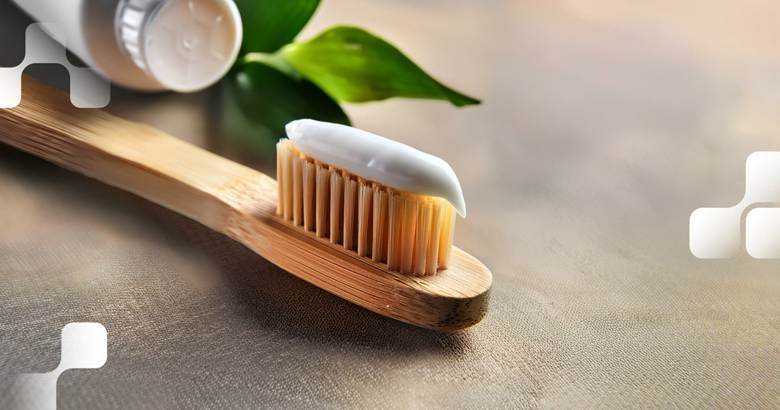
Earth Day is a great reminder that even the small choices we make every day can have an impact on the planet. One simple place to start is your oral care routine. With just a few changes, you can care for your teeth and the environment at the same time.
Here are some easy and practical ways to make your oral care routine more eco-friendly this Earth Day.
Choose a More Sustainable Toothbrush
Most toothbrushes are made of plastic. These don’t break down easily and often end up in landfills or the ocean. In the U.S. alone, it’s estimated that over a billion toothbrushes are thrown away every year. That’s a lot of plastic.
A simple switch is to use a toothbrush made from bamboo. Bamboo grows quickly and breaks down naturally, making it a great eco-friendly choice. Look for one with biodegradable packaging, too. Just remember to pull out the bristles before composting it since many are still made of nylon.
If you prefer electric toothbrushes, choose brands that offer replaceable heads to reduce waste. That way, you don’t have to throw away the whole thing when it’s worn out.
Try Eco-Friendly Dental Floss
Standard dental floss is usually made from nylon and comes in plastic containers. That’s more plastic waste, and most of it isn’t recyclable.
Instead, try floss made from silk or plant-based fibers. These options are biodegradable and often come in refillable glass or metal containers. Some brands even use compostable packaging. You can still clean between your teeth without adding more waste to the environment.
Turn Off the Tap
This one’s easy – and free. If you leave the water running while brushing your teeth, you’re wasting more water than you might think. Turning off the tap can save up to 8 gallons of water every day. Over a month, that’s more than 200 gallons per person.
Just wet your brush, turn off the tap, and brush away. It’s a simple habit that helps protect one of our most valuable resources.
Switch to Toothpaste Tablets or Natural Toothpaste
Toothpaste tubes are usually made with multiple layers of plastic and metal, making them hard to recycle. That means most end up in landfills. To reduce waste, consider using toothpaste tablets. These small, chewable tablets come in jars or tins you can reuse or recycle. They work just like regular toothpaste when you chew and brush.
If you prefer regular toothpaste, look for brands that use recyclable or biodegradable packaging. Some also offer mail-back recycling programs for used tubes.
Natural toothpaste is another good option. It often has fewer chemicals and comes in more eco-conscious packaging. Be sure to choose one with fluoride if you need it for cavity protection.
Recycle Used Oral Care Products
Even if something looks like trash, it might still be recyclable through special programs. Some companies and recycling programs accept used toothbrushes, empty toothpaste tubes, floss containers, and mouthwash bottles.
Look for brand programs or drop-off locations near you. Some dentists also collect used oral care products for recycling. Taking a few extra minutes to recycle keeps more waste out of landfills and gives materials a second life.
Buy in Bulk or Refillable Options
Buying in bulk reduces the amount of packaging used. For example, buying a larger bottle of mouthwash instead of several small ones cuts down on plastic. Some natural brands even offer refill pouches to top off containers you already have.
You can also check out local refill stores, where you bring your own container and fill up on toothpaste, floss, and other personal care products.
Pay Attention to Packaging
Next time you’re shopping for oral care products, look beyond what’s inside the box. See how the products are packaged. Choose brands that use paper, cardboard, glass, or aluminum instead of plastic. Recyclable or compostable packaging is better for the planet.
Also, avoid individually wrapped toothbrushes or single-use flossers if you can. These usually come with extra plastic packaging.
Support Brands with Eco-Friendly Practices
Some oral care brands are doing more than just selling products – they’re making efforts to reduce waste and give back. Look for companies that use renewable energy, reduce emissions, or donate a portion of their profits to environmental causes.
These brands often have certifications on their packaging, like “cruelty-free,” “vegan,” or “carbon-neutral.” Choosing to support them is another way to make your routine a little greener.
Talk to Your Dentist About Healthier, Lower-Waste Options
Your dentist can be a great resource. Ask if they recommend specific eco-friendly brands or products. They might also offer professional cleanings with less waste, such as digital records instead of printed forms or reusable tools where safe and appropriate.
Some dental offices even participate in recycling programs or offer guidance on how to dispose of your products responsibly.
Share What You Learn
Finally, the more people know about eco-friendly oral care, the bigger the impact. Talk to your friends and family about the small changes you’re making. Share tips on social media or join a local group that focuses on sustainability.
Even kids can learn simple steps like turning off the faucet and throwing used products in the right bin. Teaching good habits early can create lasting change.
A Healthier Smile and a Greener Lifestyle
It’s easy to overlook the environmental impact of brushing your teeth or flossing every night. But when you add it up over time – and across millions of people – it makes a big difference.
This Earth Day, consider making one or two small changes in your routine. It’s not about being perfect. It’s about being a little more mindful. Your teeth – and the planet – will thank you.
At Dallas Dental Wellness, our goal is to help you take care of your smile with simple, personalized care. If you’d like to learn more about how to improve your oral care routine as well as our services, visit our Services Page. We’re here to support your journey to better oral health, one healthy habit at a time.
Sources:
“Earth Day 2025,” EarthDay.Org, https://www.earthday.org/earth-day-2025/
“How your toothbrush became a part of the plastic crisis,” National Geographic, https://www.nationalgeographic.com/environment/article/story-of-plastic-toothbrushes
“How Effective are Eco-Friendly Dental Hygiene Products in Preventing Carious Lesions and Improvement in Overall Oral Health,” Virginia Commonwealth University, https://scholarscompass.vcu.edu/denh_student/28/
“Water Conservation,” Grand Prairie Water Commission, https://www.gpwc-il.org/education
“Turn Off the Tap,” Environment Protection Agency, https://19january2017snapshot.epa.gov/www3/watersense/kids/tap-off.html
“Sustainable Oral Healthcare: A Joint Stakeholder Approach,” National Library of Medicine, https://pmc.ncbi.nlm.nih.gov/articles/PMC9275086/
